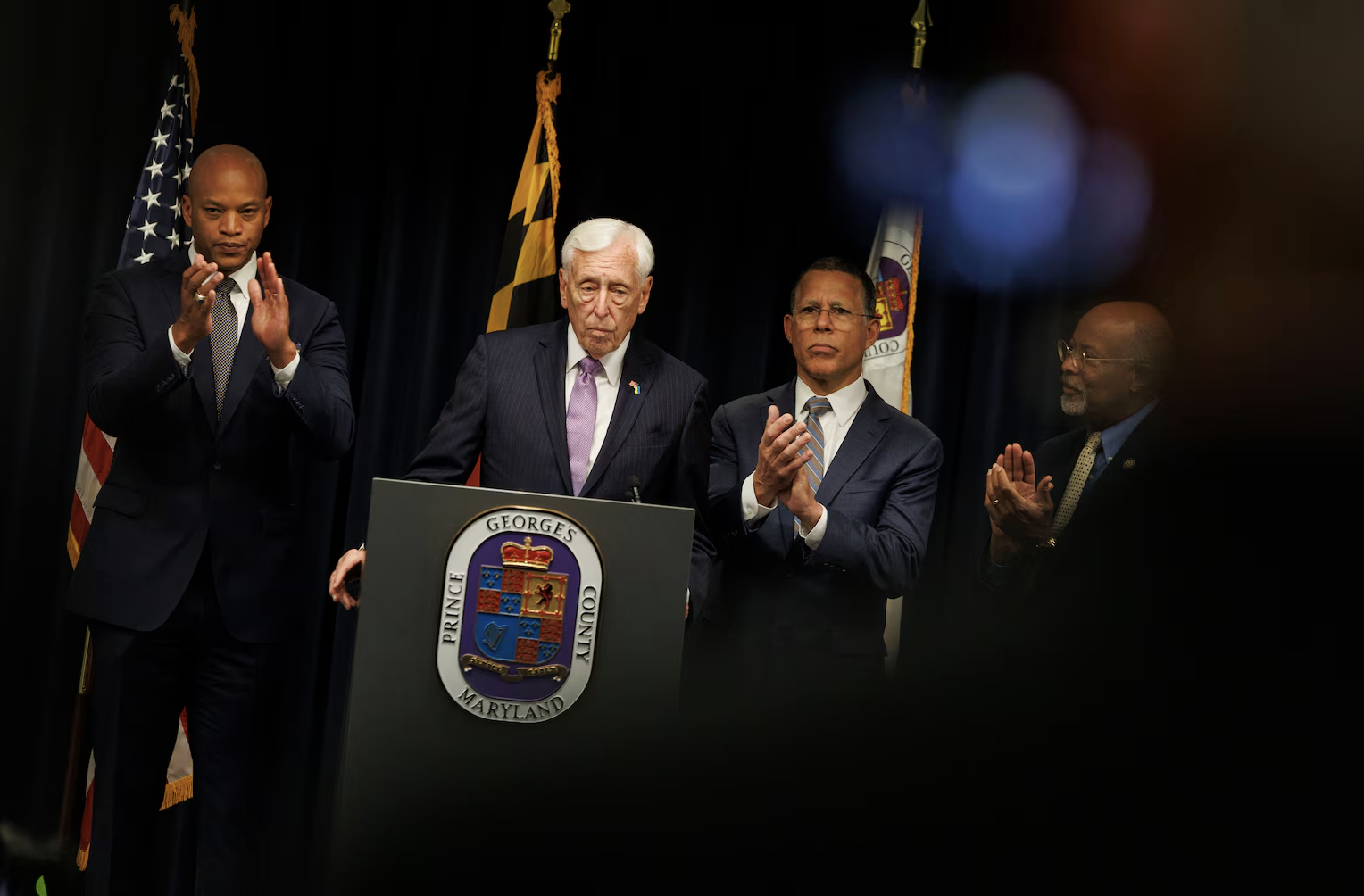Local
Ricardo Martinez dies at 71
Economist, former D.C. resident worked for development bank


Ricardo C. Martinez (Photo courtesy of Richard Viola)
Ricardo C. Martinez, a senior economist with the D.C.-based Inter-American Development Bank (IDB) for more than 20 years and a well-known figure in the gay communities of Washington and Fort Lauderdale, Fla., died August 15 at a hospice in Fort Lauderdale from complications associated with a stroke. He was 71.
Friends and colleagues note that he worked for years traveling extensively to countries in Latin America and the Caribbean on behalf of the IDB to assess and make recommendations on those countries’ needs for economic development loans.
The friends from Washington and the Fort Lauderdale-Miami area, where Martinez moved after taking early retirement at the age of 55, say his retirement enabled him to devote more time to his lifelong passion for the performing arts, especially opera.
“Sometimes he saw his own life in terms of the grand opera he so adored,” said George Jackson, one of his longtime Washington friends.
Martinez was born and raised in Havana, Cuba. He told friends he completed high school there just as the uncertainty and turmoil that followed the assumption of power by Fidel Castro prompted many Cubans to flee to the U.S.
As an only child, he told friends his parents arranged for him to abruptly depart his homeland by himself and arrive in Miami in 1960 as part of the Catholic Church operated “Peter Pan” program, through which thousands of unaccompanied Cuban children and teenagers were dispatched to the U.S. in the early 1960s.
According to his friend Richard Poms, Martinez said his parents arrived in the U.S. the following year and the family settled in Northern Virginia. A short time later, Martinez began his studies in economics at Catholic University in D.C. through an academic scholarship.
After receiving a bachelor’s degree in economics at Catholic University he studied economics on the graduate level at the University of Virginia in Charlottesville.
He taught courses in intermediate level macroeconomic theory and principles of economics and economic systems at George Mason University in Fairfax, Va., from 1968 to 1970. He next joined the staff of the Brookings Institution in Washington as a research assistant from 1970 to 1974, according to his curriculum vitae.
Martinez began his tenure at the Inter-American Development Bank in 1974 as an economist with the bank’s Country Economic Division. He assumed the position of senior economist at the bank’s General Studies Division in 1981 and assumed additional responsibilities in 1989 as senior economist with the Country Economics Division.
As someone fluent in English and Spanish, he wrote over 40 chapters during his tenure at the IDB for the annual publication Economic and Social Progress in Latin America. Among the countries he visited and for which he made loan related assessments and recommendations were Barbados, Suriname, Venezuela, El Salvador, Mexico and Costa Rica.
Upon his retirement in 1998 Martinez moved from his longtime residence in Arlington, Va., to Miami Beach before settling later in Fort Lauderdale.
According to friends, he shared his passion for the opera with a longstanding interest in European history and the European nobility.
“He loved European nobility,” said Poms. “He was an expert on the kings and the queens going back all the way. He knew who was married to whom – what family this, what family that.”
Before and after retirement his love for opera prompted him travel to opera houses in the U.S. and Europe, including regular trips to the Metropolitan Opera in New York, where he boasted of crossing paths and socializing with famed Metropolitan Opera conductor and music director James Levine at Manhattan nightspots after the performances.
“I remember his love for good cuisine and how he wouldn’t eat dinner until the sun had set,” said Tom Hardy, a friend from Washington. “He went to all the best restaurants, and he loved company and he loved to tell us about history and of course ancestry and the European monarchs.”
Martinez is predeceased by his parents, Ricardo, Sr., and Hilda Martinez, of Arlington, Va., and his longtime friend Jack Keegel of Washington.
He is survived by an uncle in Jacksonville, Fla., Orlando Acosta, a cousin in Los Angeles, and many friends in Washington and Fort Lauderdale, including Richard Poms, Richard Viola, Steven Frias Rodriquez, Tom Hardy, Carl Spier, Larry Smelser, George Jackson, David Cox, Emilio Cueto, and this reporter, among many others.
Poms said plans would be announced soon for memorial services in Fort Lauderdale and D.C. He said plans were being made for interment of Martinez’s ashes at Columbia Gardens Cemetery in Arlington, Va., near the gravesite of his parents.
Virginia
Gay Va. State Sen. Ebbin resigns for role in Spanberger administration
Veteran lawmaker will step down in February

Alexandria Democrat Adam Ebbin, who has served as an openly gay member of the Virginia Legislature since 2004, announced on Jan. 7 that he is resigning from his seat in the State Senate to take a job in the administration of Gov.-Elect Abigail Spanberger.
Since 2012, Ebbin has been a member of the Virginia Senate for the 39th District representing parts of Alexandria, Arlington, and Fairfax counties. He served in the Virginia House of Delegates representing Alexandria from 2004 to 2012, becoming the state’s first out gay lawmaker.
His announcement says he submitted his resignation from his Senate position effective Feb. 18 to join the Spanberger administration as a senior adviser at the Virginia Cannabis Control Authority.
“I’m grateful to have the benefit of Senator Ebbin’s policy expertise continuing to serve the people of Virginia, and I look forward to working with him to prioritize public safety and public health,” Spanberger said in Ebbin’s announcement statement.
She was referring to the lead role Ebbin has played in the Virginia Legislature’s approval in 2020 of legislation decriminalizing marijuana and the subsequent approval in 2021of a bill legalizing recreational use and possession of marijuana for adults 21 years of age and older. But the Virginia Legislature has yet to pass legislation facilitating the retail sale of marijuana for recreational use and limits sales to purchases at licensed medical marijuana dispensaries.
“I share Governor-elect Spanberger’s goal that adults 21 and over who choose to use cannabis, and those who use it for medical treatment, have access to a well-tested, accurately labeled product, free from contamination,” Ebbin said in his statement. “2026 is the year we will move cannabis sales off the street corner and behind the age-verified counter,” he said.
Maryland
Steny Hoyer, the longest-serving House Democrat, to retire from Congress
Md. congressman served for years in party leadership

By ASSOCIATED PRESS and LISA MASCARO | Rep. Steny Hoyer of Maryland, the longest-serving Democrat in Congress and once a rival to become House speaker, will announce Thursday he is set to retire at the end of his term.
Hoyer, who served for years in party leadership and helped steer Democrats through some of their most significant legislative victories, is set to deliver a House floor speech about his decision, according to a person familiar with the situation and granted anonymity to discuss it.
“Tune in,” Hoyer said on social media. He confirmed his retirement plans in an interview with the Washington Post.
The rest of this article can be found on the Baltimore Banner’s website.
District of Columbia
Kennedy Center renaming triggers backlash
Artists who cancel shows threatened; calls for funding boycott grow

Efforts to rename the Kennedy Center to add President Trump’s name to the D.C. arts institution continue to spark backlash.
A new petition from Qommittee , a national network of drag artists and allies led by survivors of hate crimes, calls on Kennedy Center donors to suspend funding to the center until “artistic independence is restored, and to redirect support to banned or censored artists.”
“While Trump won’t back down, the donors who contribute nearly $100 million annually to the Kennedy Center can afford to take a stand,” the petition reads. “Money talks. When donors fund censorship, they don’t just harm one institution – they tell marginalized communities their stories don’t deserve to be told.”
The petition can be found here.
Meanwhile, a decision by several prominent musicians and jazz performers to cancel their shows at the recently renamed Trump-Kennedy Center in D.C. planned for Christmas Eve and New Year’s Eve has drawn the ire of the Center’s president, Richard Grenell.
Grenell, a gay supporter of President Donald Trump who served as U.S. ambassador to Germany during Trump’s first term as president, was named Kennedy Center president last year by its board of directors that had been appointed by Trump.
Last month the board voted to change the official name of the center from the John F. Kennedy Memorial Center For The Performing Arts to the Donald J. Trump And The John F. Kennedy Memorial Center For The Performing Arts. The revised name has been installed on the outside wall of the center’s building but is not official because any name change would require congressional action.
According to a report by the New York Times, Grenell informed jazz musician Chuck Redd, who cancelled a 2025 Christmas Eve concert that he has hosted at the Kennedy Center for nearly 20 years in response to the name change, that Grenell planned to arrange for the center to file a lawsuit against him for the cancellation.
“Your decision to withdraw at the last moment — explicitly in response to the Center’s recent renaming, which honors President Trump’s extraordinary efforts to save this national treasure — is classic intolerance and very costly to a non-profit arts institution,” the Times quoted Grenell as saying in a letter to Redd.
“This is your official notice that we will seek $1 million in damages from you for this political stunt,” the Times quoted Grenell’s letter as saying.
A spokesperson for the Trump-Kennedy Center did not immediately respond to an inquiry from the Washington Blade asking if the center still planned to file that lawsuit and whether it planned to file suits against some of the other musicians who recently cancelled their performances following the name change.
In a follow-up story published on Dec. 29, the New York Times reported that a prominent jazz ensemble and a New York dance company had canceled performances scheduled to take place on New Year’s Eve at the Kennedy Center.
The Times reported the jazz ensemble called The Cookers did not give a reason for the cancellation in a statement it released, but its drummer, Billy Hart, told the Times the center’s name change “evidently” played a role in the decision to cancel the performance.
Grenell released a statement on Dec. 29 calling these and other performers who cancelled their shows “far left political activists” who he said had been booked by the Kennedy Center’s previous leadership.
“Boycotting the arts to show you support the arts is a form of derangement syndrome,” the Times quoted him as saying in his statement.
-

 Colombia5 days ago
Colombia5 days agoGay Venezuelan man who fled to Colombia uncertain about homeland’s future
-

 Arts & Entertainment5 days ago
Arts & Entertainment5 days ago2026 Most Eligible LGBTQ Singles nominations
-

 District of Columbia4 days ago
District of Columbia4 days agoKennedy Center renaming triggers backlash
-

 District of Columbia5 days ago
District of Columbia5 days agoNew interim D.C. police chief played lead role in security for WorldPride


















